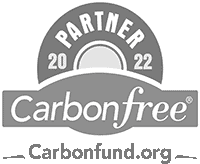When it comes to finding the best Lake Whitney energy plans for your home, it can be difficult to know where to start. That’s where Energy Reviews comes in – we make it easy to compare the top Lake Whitney energy plans and find the perfect one for your needs. With our simple comparison tool, you can find providers that offer the lowest rates, the best customer service, and the most exciting features. So what are you waiting for? Compare the top Lake Whitney electricity rates, plans, and providers today and start saving! Simply enter your zip code into our comparison tool above to get started.
Green energy can be defined as renewable sources of energy that are environmentally friendly. These sources include solar, wind, hydro, and geothermal power. Unlike traditional fossil fuels like coal and oil, green energy does not produce harmful emissions that damage the environment. In fact, using green energy actually helps to reduce greenhouse gas emissions and combat climate change.
The benefits of having green energy to power your home are endless. Not only is it good for the environment, but it also saves you money in the long run. Green energy is renewable, meaning that it can be used over and over again without damaging the planet. This is in stark contrast to traditional fossil fuels, which are finite and will eventually run out.
Another benefit of using green energy is that it’s cheaper in the long run. Fossil fuels are becoming more and more expensive as they become harder to find, while green energy sources like solar and wind power are becoming more and more affordable. In fact, many homeowners are now choosing to go completely off the grid by using solar and wind power to meet all their energy needs.
Finally, using green energy helps to protect the environment. Fossil fuels produce harmful emissions that damage the planet, while green energy sources like solar and wind power produce no emissions whatsoever. By making the switch to green energy, you can help reduce greenhouse gas emissions and combat climate change.
Did you know that solar energy is the most abundant source of renewable energy on Earth? In fact, the sun provides more than 10,000 times the amount of energy that humans currently use. That’s why solar power is such a promising technology – it has the potential to meet all our energy needs without damaging the environment.
Solar energy has come a long way in recent years. Today, there are a variety of different solar technologies available, from small-scale rooftop systems to large-scale utility projects. And thanks to advancements in storage technology, solar energy can now be used 24 hours a day, 7 days a week.
There are many benefits to using solar energy. Perhaps the most obvious benefit is that it’s clean and renewable. Solar power doesn’t produce any harmful emissions like coal or oil does, and it can be used over and over again without damaging the planet. Additionally, solar power is reliable and affordable. It costs less than traditional fuels in the long run, and it’s not affected by price fluctuations like fossil fuels are.
Other Cities We Serve: Fort Worth | Midland | Mansfield
When it comes to choosing an energy plan, there are two main types: fixed-rate and variable-rate. Both have their pros and cons, so it’s important to understand the difference before making a decision. Here is a breakdown of each type:
Fixed-Rate Plans:
Fixed-rate plans are exactly what they sound like – your rate remains the same for the duration of the plan. This can be a good option if you want predictability in your monthly bills, or if you think energy prices will rise in the future. However, fixed-rate plans can also be more expensive than other options, and you may miss out on potential savings if rates go down.
Variable-Rate Plans:
Variable-rate plans change with the market price of electricity. This means your rate could go up or down depending on current conditions. Variable-rate plans tend to be cheaper than fixed-rate plans, but there is more risk involved since your bill could change month to month. Additionally, you may not benefit from falling energy prices if you’re locked into a long-term contract.
Monthly and yearly contracts are two different types of contracts you can sign with your energy provider. A monthly contract means you’re locked in for a month at a time, while a yearly contract means you’re locked in for a year.
Monthly contracts can be a good option if you want more flexibility. You can cancel or switch providers any time you want, and you’re not locked into a long-term contract. However, monthly contracts can also be more expensive than other options.
Yearly contracts are a good option if you want to save money. Your rate is guaranteed to be lower than the market price, and you’re not locked into a contract for more than a year. However, if energy prices go down after you sign your contract, you may not benefit from the savings.
Energy deregulation is the process of removing government controls over the energy industry. This can include things like price controls, quotas, and regulations on how much energy companies can produce. Deregulation allows energy companies to compete with each other, which ultimately leads to lower prices and more choices for consumers.
Texas is one of the states that have deregulated their energy market. This means that you, as a consumer, have the power to choose your energy provider. You can compare different providers and plans to find the best rate for you.
Energy deregulation has brought many benefits to Texas consumers. Prices have decreased, there are more choices available, and air quality has improved. If you’re looking for an electricity plan in Lake Whitney, TX, Energy Reviews can help you find the perfect option for you. We provide information on all the different providers and plans available, so you can make an informed decision.
What is an energy provider?
An energy provider is a company that produces, supplies, and distributes energy to households and businesses in a given area. Energy providers purchase energy from energy generators such as coal and gas companies and then supply it to energy customers. Additionally, energy providers are responsible for managing energy infrastructure such as power lines, substations, distribution networks, and other energy-related equipment.
Energy providers are regulated by energy commissions and energy markets in order to ensure energy customers receive the best energy rates and energy services possible. By comparing energy plans, energy customers can make sure they get the most competitive energy rate available in their area.
What is an energy provider?
An energy provider is a company that produces, supplies, and distributes energy to households and businesses in a given area. Energy providers purchase energy from energy generators such as coal and gas companies and then supply it to energy customers. Additionally, energy providers are responsible for managing energy infrastructure such as power lines, substations, distribution networks, and other energy-related equipment.
Energy providers are regulated by energy commissions and energy markets in order to ensure energy customers receive the best energy rates and energy services possible. By comparing energy plans, energy customers can make sure they get the most competitive energy rate available in their area.

Terms, conditions, features, availability, pricing, fees, service and support options subject to change without notice.
Public Utility Commission of Texas Broker Registration BR190123
© 2022 Energy Reviews. All Rights Reserved.



